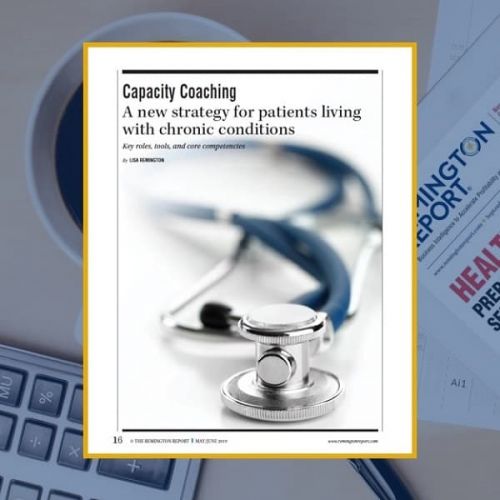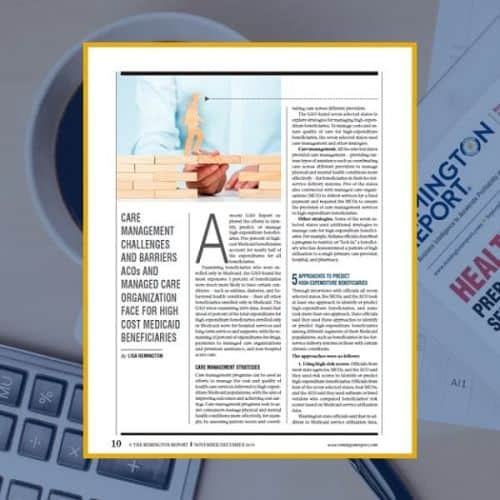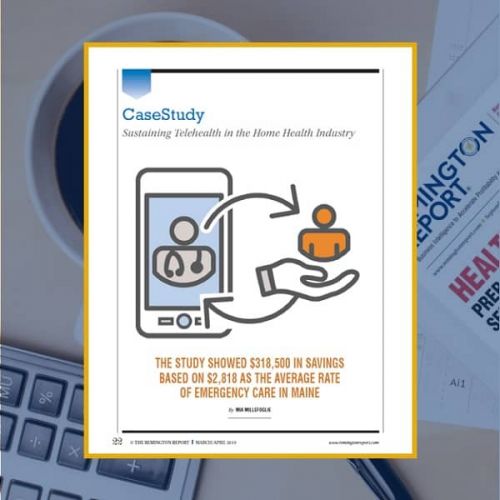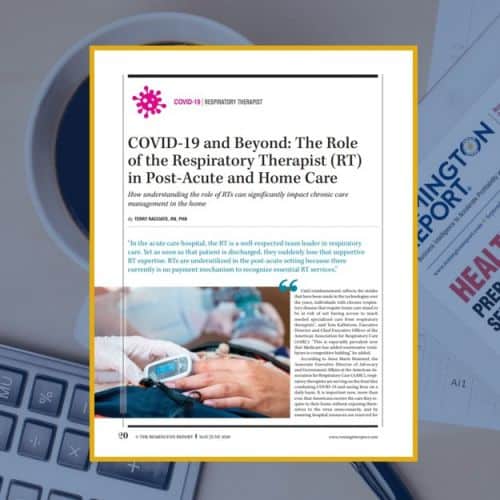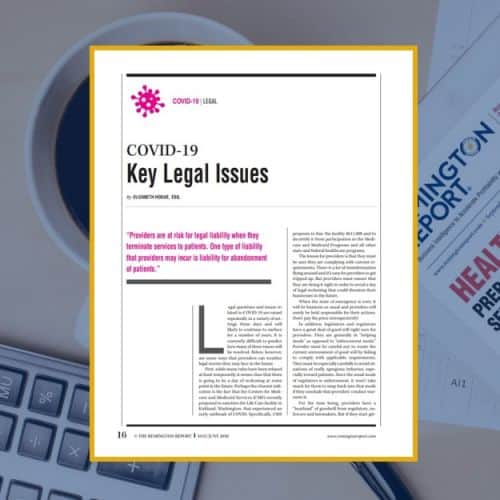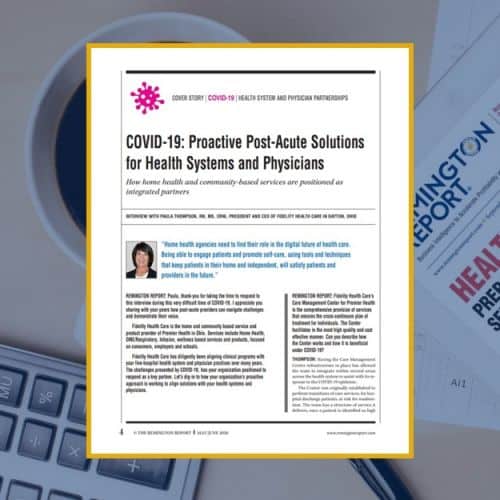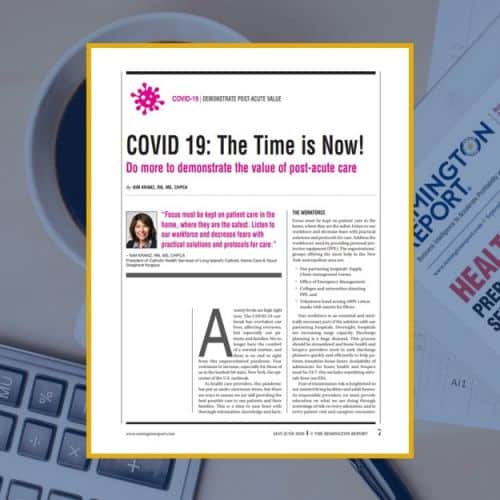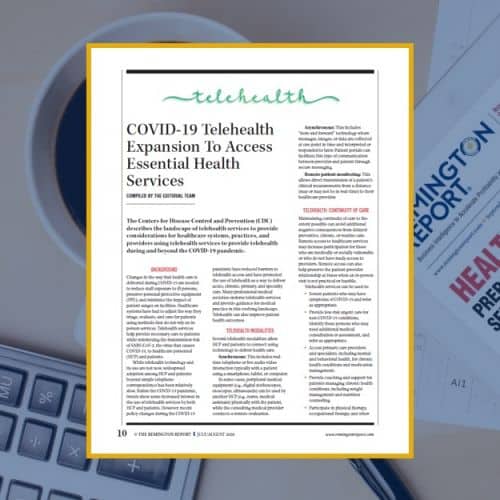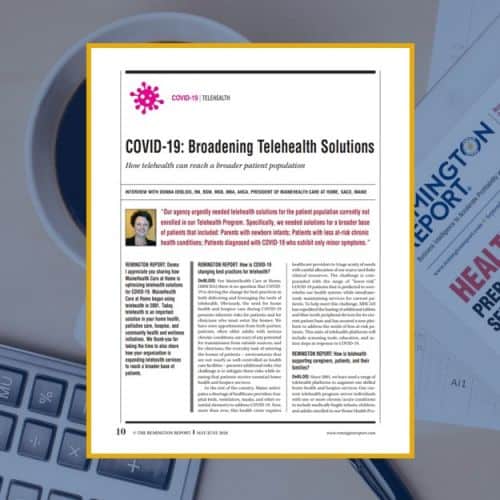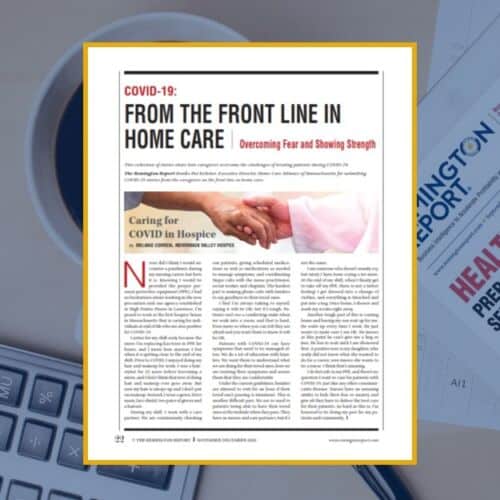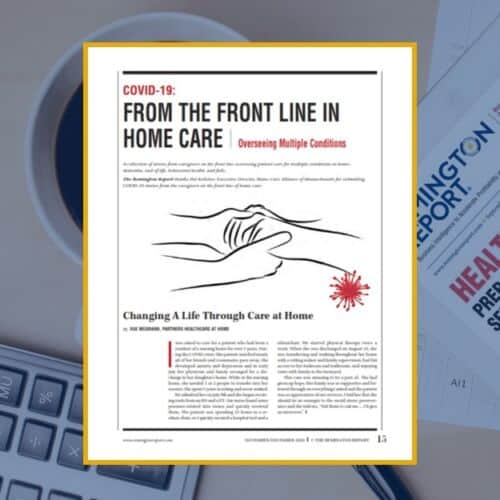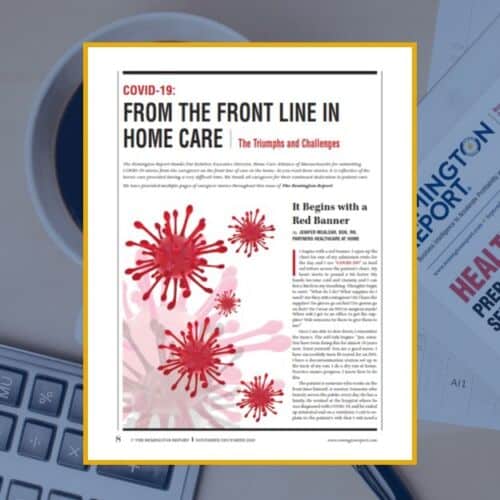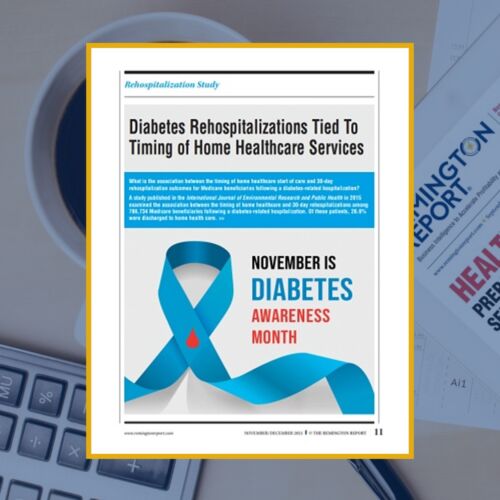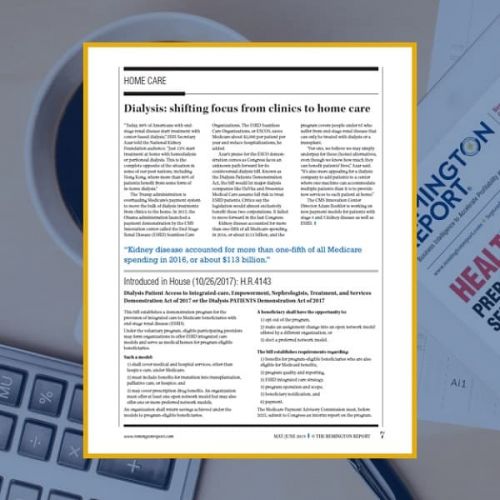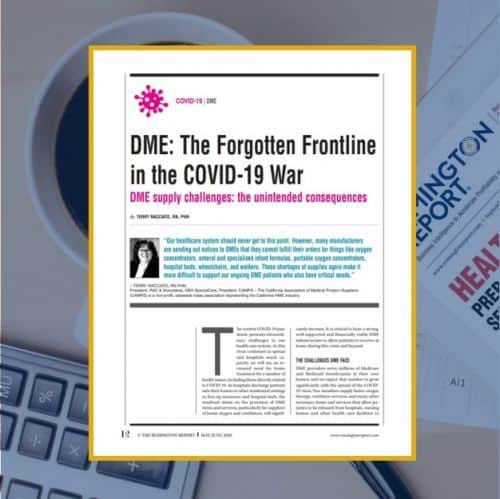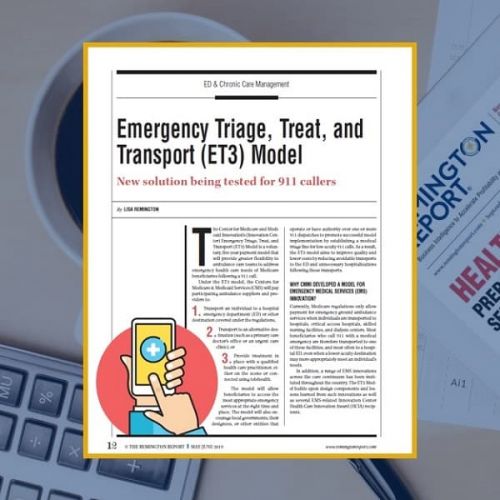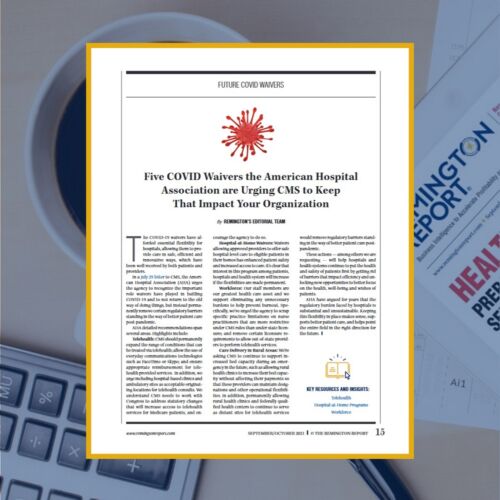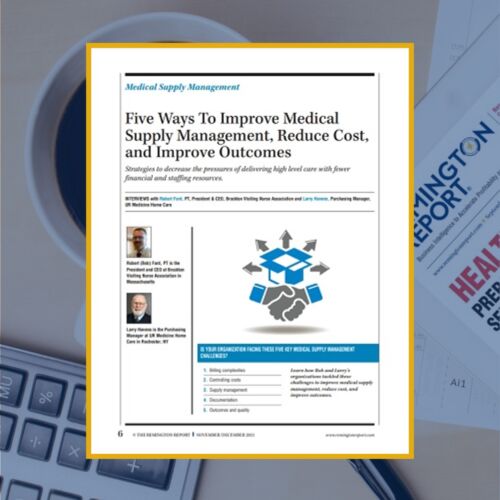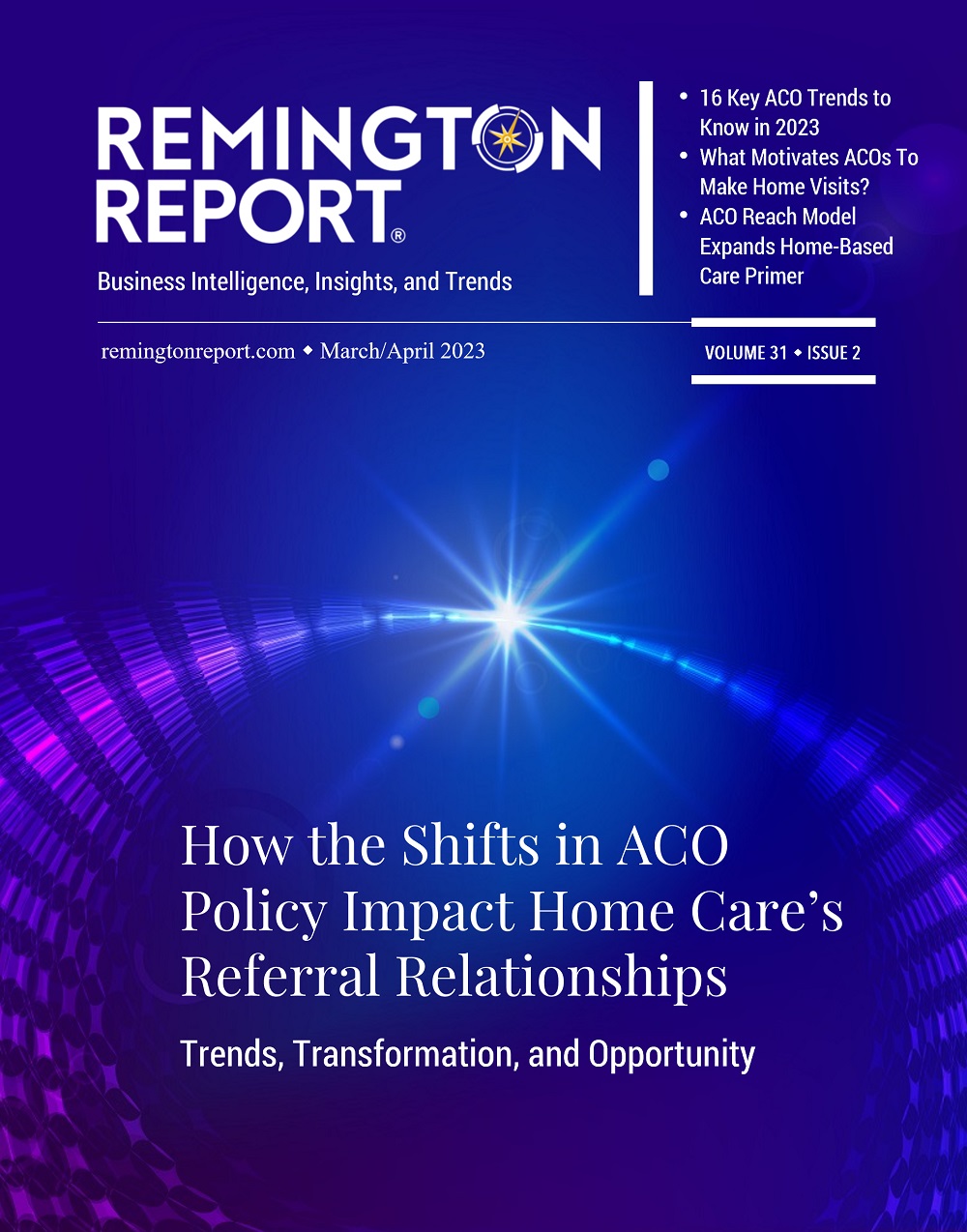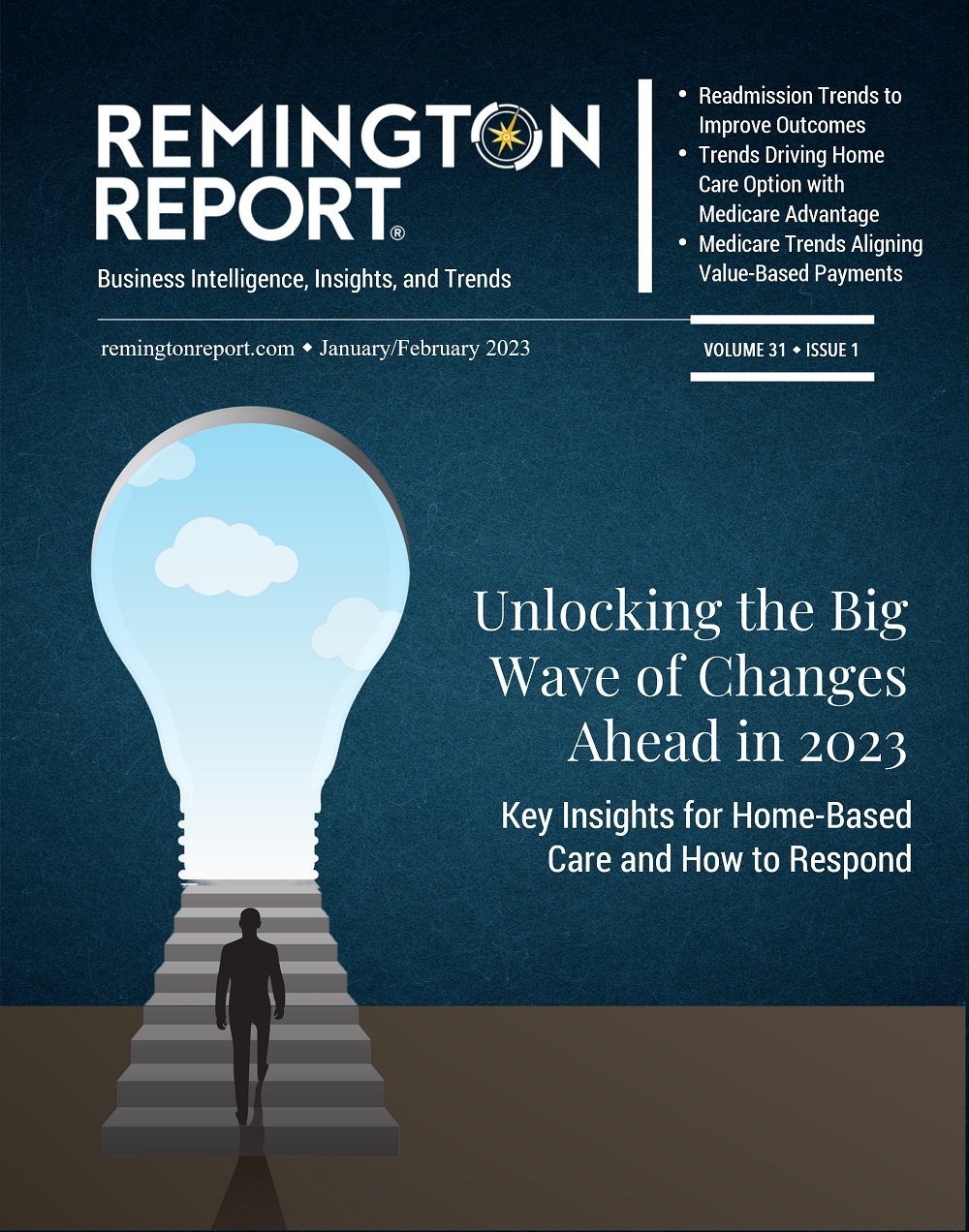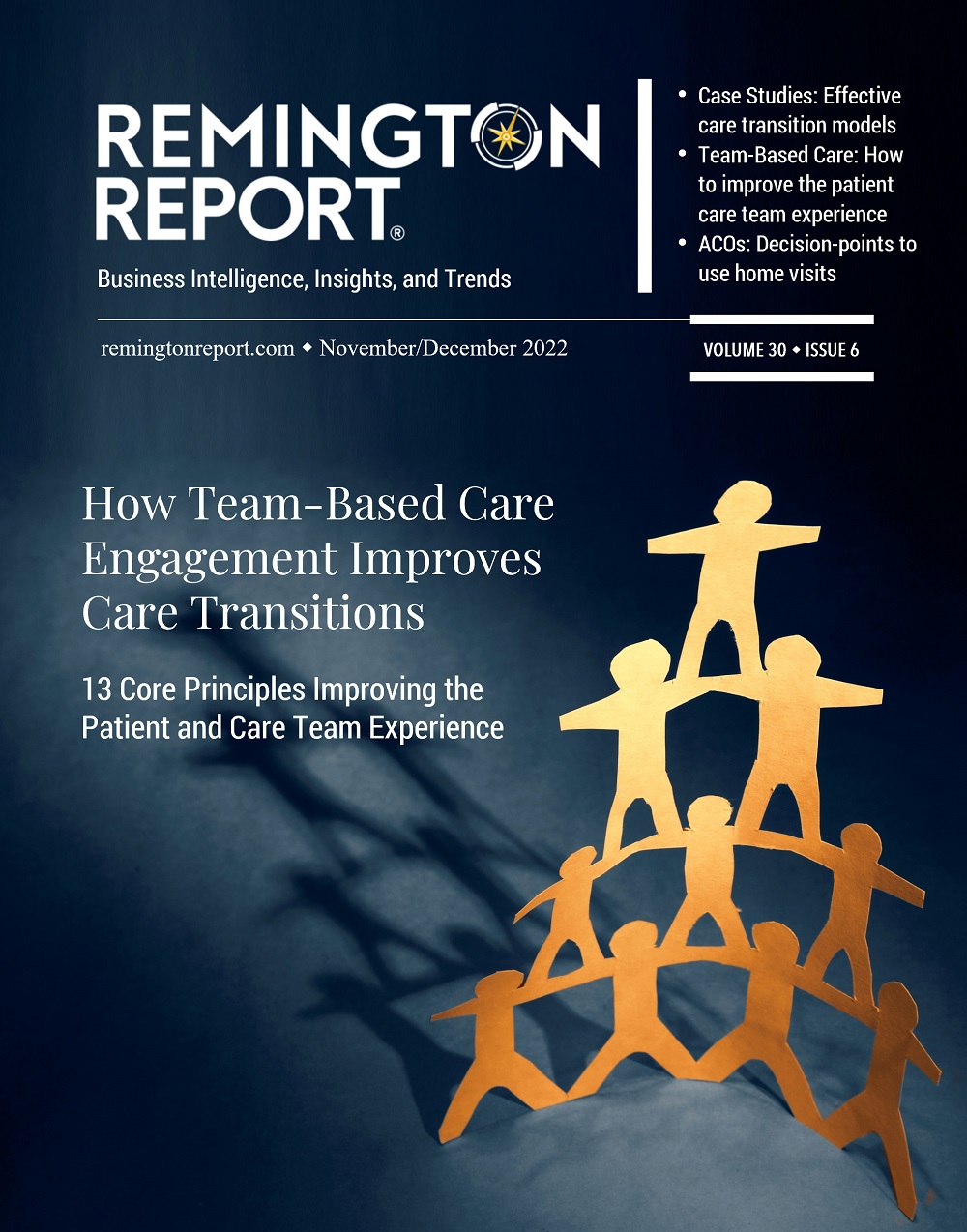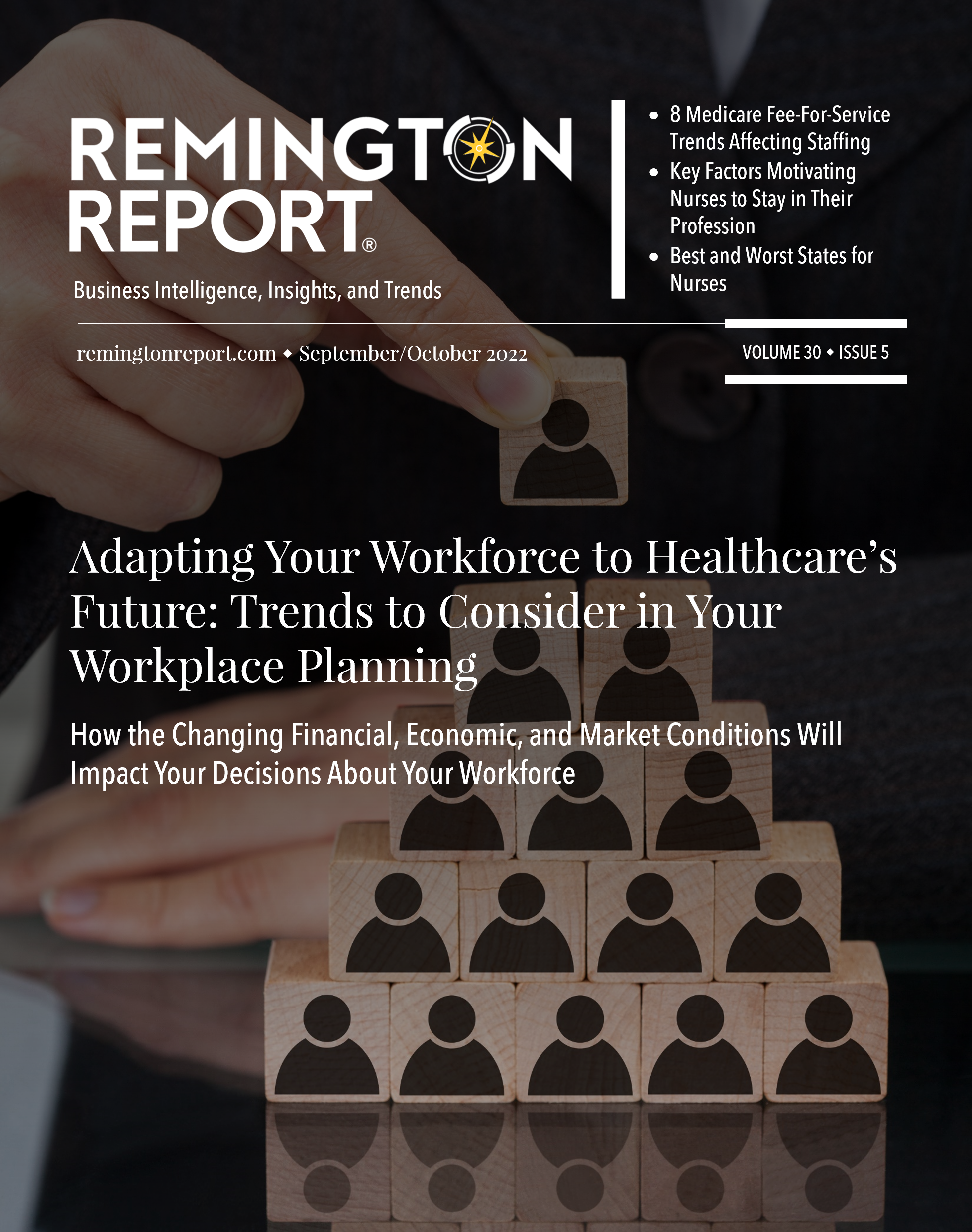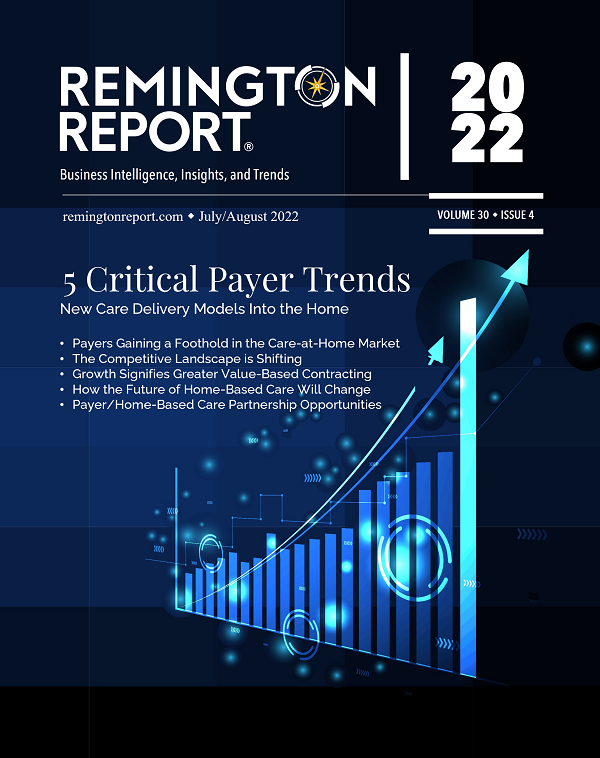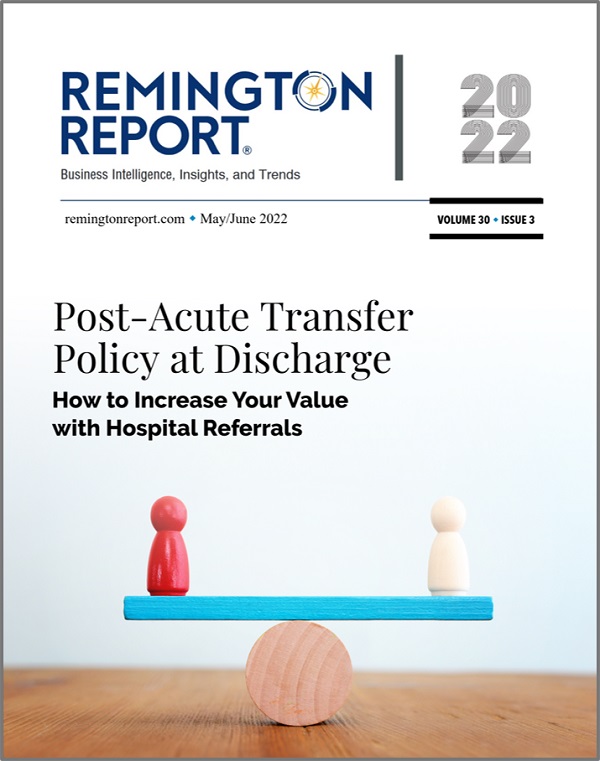-
 Fostering relationships between ACOs, home health, palliative care, private duty, and in-home care providers involves establishing connections grounded in value, trust, and growth opportunities. This online Master Class will identify avenues for relationship building, craft compelling value propositions, and guide you in presenting a convincing business case for enhancing collaborations between ACOs and home care providers. Recording of Live Master Class Available REGISTRATION FEE: $400 REGISTRATION OPEN Registration includes enrollment for up to 10 people. Must be enrolled to attend. Business email required for each enrollee. This Master Class is delivered live online but will also be available afterward on demand, ensuring you can get valuable insights even if you cannot attend the live event. Don’t let your busy schedule hinder your access to valuable knowledge and skills.
Fostering relationships between ACOs, home health, palliative care, private duty, and in-home care providers involves establishing connections grounded in value, trust, and growth opportunities. This online Master Class will identify avenues for relationship building, craft compelling value propositions, and guide you in presenting a convincing business case for enhancing collaborations between ACOs and home care providers. Recording of Live Master Class Available REGISTRATION FEE: $400 REGISTRATION OPEN Registration includes enrollment for up to 10 people. Must be enrolled to attend. Business email required for each enrollee. This Master Class is delivered live online but will also be available afterward on demand, ensuring you can get valuable insights even if you cannot attend the live event. Don’t let your busy schedule hinder your access to valuable knowledge and skills. -
 With all that is happening in the healthcare world, a major change is taking place on two fronts. First, the $260 billion physician market is being transformed, and second, specialists will be a major referral source for patients discharged from outpatient and surgery centers. These two changing dynamics open the door for working more closely with physicians at a care plan level, with more involvement with discharge planning and improvements in outcomes. This online Master Class will identify avenues for relationship building, craft compelling value propositions, and guide you in presenting a convincing business case for enhancing collaborations between home health, hospice, palliative care, private duty, and in-home care providers with physicians and specialists. REGISTRATION FEE: $400 REGISTRATION OPEN AVAILABLE ON DEMAND Registration includes enrollment for up to 10 people. Must be enrolled to attend. Business email required for each enrollee. This Master Class is delivered live online but will also be available afterward on demand, ensuring you can get valuable insights even if you cannot attend the live event. Don’t let your busy schedule hinder your access to valuable knowledge and skills.
With all that is happening in the healthcare world, a major change is taking place on two fronts. First, the $260 billion physician market is being transformed, and second, specialists will be a major referral source for patients discharged from outpatient and surgery centers. These two changing dynamics open the door for working more closely with physicians at a care plan level, with more involvement with discharge planning and improvements in outcomes. This online Master Class will identify avenues for relationship building, craft compelling value propositions, and guide you in presenting a convincing business case for enhancing collaborations between home health, hospice, palliative care, private duty, and in-home care providers with physicians and specialists. REGISTRATION FEE: $400 REGISTRATION OPEN AVAILABLE ON DEMAND Registration includes enrollment for up to 10 people. Must be enrolled to attend. Business email required for each enrollee. This Master Class is delivered live online but will also be available afterward on demand, ensuring you can get valuable insights even if you cannot attend the live event. Don’t let your busy schedule hinder your access to valuable knowledge and skills.Add Your Enrollees
Additional enrollees will be enabled upon completion of initial enrollee. Company email addresses required. Think Tank programs are open only to provider organizations delivering patient care, including home health care, at-home care, hospice, palliative care, community-based organizations, hospitals, ACOs, managed care organizations, and physicians. Enrollees for the program must be full-time employees of the organization. If you are unsure whether your organization qualifies for Think Tank programs or your organization is a provider that also sells products, services or you are a consultant then contact us before enrolling. -
 How does your organization foster mutually beneficial partnerships aimed at enhancing key metrics, aligning common goals, and advancing both clinical quality and financial objectives? Collaborating in this manner generates synergistic solutions throughout a patient’s journey, amplifying the effectiveness of care delivery. This online Master Class will identify avenues for relationship building, craft compelling value propositions, and guide you in presenting a convincing business case for enhancing collaborations between home health, hospice, palliative care, private duty, and in-home care providers with hospitals and health systems. AVAILABLE ON DEMAND REGISTRATION FEE $420 Registration includes enrollment for up to 10 people. Must be enrolled to attend. Business email required for each enrollee. This Master Class is delivered live online but will also be available afterward on demand, ensuring you can get valuable insights even if you cannot attend the live event. Don’t let your busy schedule hinder your access to valuable knowledge and skills.
How does your organization foster mutually beneficial partnerships aimed at enhancing key metrics, aligning common goals, and advancing both clinical quality and financial objectives? Collaborating in this manner generates synergistic solutions throughout a patient’s journey, amplifying the effectiveness of care delivery. This online Master Class will identify avenues for relationship building, craft compelling value propositions, and guide you in presenting a convincing business case for enhancing collaborations between home health, hospice, palliative care, private duty, and in-home care providers with hospitals and health systems. AVAILABLE ON DEMAND REGISTRATION FEE $420 Registration includes enrollment for up to 10 people. Must be enrolled to attend. Business email required for each enrollee. This Master Class is delivered live online but will also be available afterward on demand, ensuring you can get valuable insights even if you cannot attend the live event. Don’t let your busy schedule hinder your access to valuable knowledge and skills.Add Your Enrollees
Additional enrollees will be enabled upon completion of initial enrollee. Company email addresses required. Think Tank programs are open only to provider organizations delivering patient care, including home health care, at-home care, hospice, palliative care, community-based organizations, hospitals, ACOs, managed care organizations, and physicians. Enrollees for the program must be full-time employees of the organization. If you are unsure whether your organization qualifies for Think Tank programs or your organization is a provider that also sells products, services or you are a consultant then contact us before enrolling. -
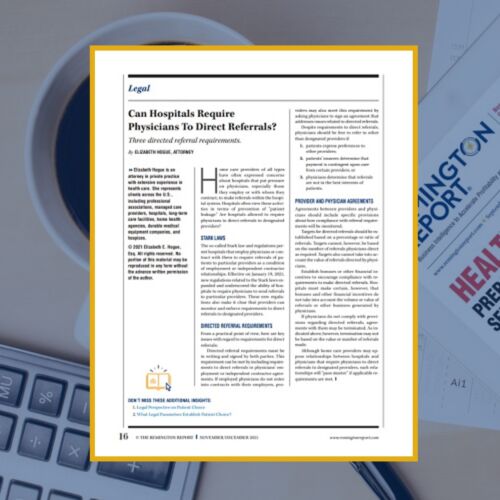 Effective on January 19, 2021, new regulations related to the Stark laws expanded and underscored the ability of hospitals to require physicians to send referrals to particular providers. These new regulations also make it clear that providers can monitor and enforce requirements to direct referrals to designated providers. This article is free to 1-Year Classic and 2-Year Premium subscribers.
Effective on January 19, 2021, new regulations related to the Stark laws expanded and underscored the ability of hospitals to require physicians to send referrals to particular providers. These new regulations also make it clear that providers can monitor and enforce requirements to direct referrals to designated providers. This article is free to 1-Year Classic and 2-Year Premium subscribers. -
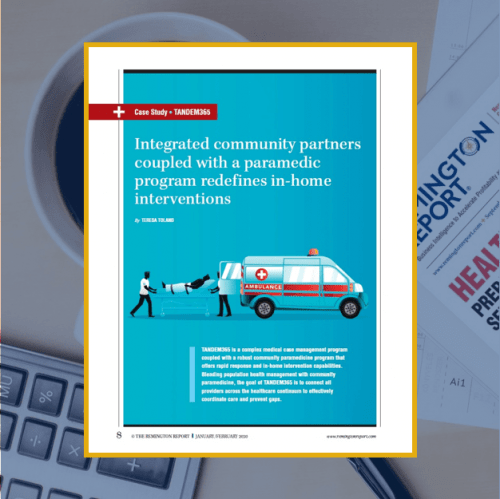 TANDEM365 is a complex medical case management program coupled with a robust community paramedicine program that offers rapid response and in-home intervention capabilities. Blending population health management with community paramedicine, the goal of TANDEM365 is to connect all providers across the healthcare continuum to effectively coordinate care and prevent gaps. This article is free to 1-Year Classic and 2-Year Premium subscribers.
TANDEM365 is a complex medical case management program coupled with a robust community paramedicine program that offers rapid response and in-home intervention capabilities. Blending population health management with community paramedicine, the goal of TANDEM365 is to connect all providers across the healthcare continuum to effectively coordinate care and prevent gaps. This article is free to 1-Year Classic and 2-Year Premium subscribers. -
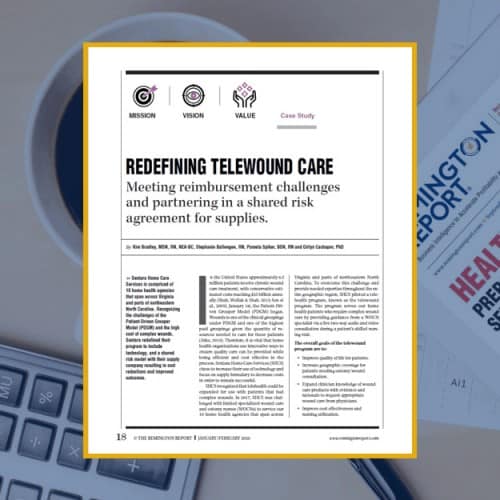 Sentara Home Care Services is comprised of 10 home health agencies that span across Virginia and parts of northeastern North Carolina. Recognizing the challenges of the Patient-Driven Grouper Model (PDGM) and the high cost of complex wounds, Sentara redefined its program to include technology, and a shared risk model with their supply company resulting in cost reductions and improved outcomes. This article is free to 1-Year Classic and 2-Year Premium subscribers.
Sentara Home Care Services is comprised of 10 home health agencies that span across Virginia and parts of northeastern North Carolina. Recognizing the challenges of the Patient-Driven Grouper Model (PDGM) and the high cost of complex wounds, Sentara redefined its program to include technology, and a shared risk model with their supply company resulting in cost reductions and improved outcomes. This article is free to 1-Year Classic and 2-Year Premium subscribers. -
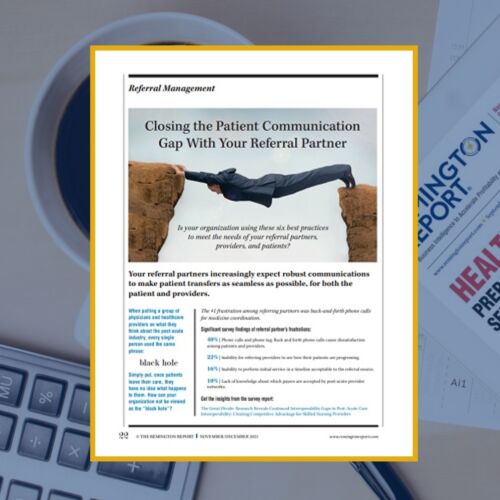 Across the board, we see from referral sources and other care providers alike that they really feel as if they’re part of the care team now instead of the end of the line where a patient goes when they get out of the hospital. Your peers share their thoughts and solutions. This article is free to 1-Year Classic and 2-Year Premium subscribers.
Across the board, we see from referral sources and other care providers alike that they really feel as if they’re part of the care team now instead of the end of the line where a patient goes when they get out of the hospital. Your peers share their thoughts and solutions. This article is free to 1-Year Classic and 2-Year Premium subscribers. -
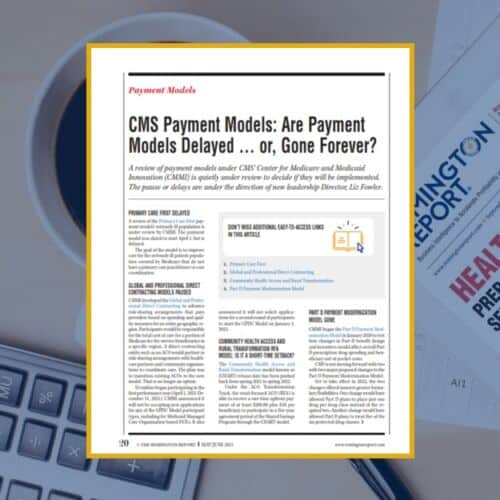 A review of payment models under CMS’ Center for Medicare and Medicaid Innovation (CMMI) is quietly under review to decide if they will be implemented. Many of these models were popular with care at home providers. We provide insight into each of these payment models. This article is free to 1-Year Classic and 2-Year Premium subscribers.
A review of payment models under CMS’ Center for Medicare and Medicaid Innovation (CMMI) is quietly under review to decide if they will be implemented. Many of these models were popular with care at home providers. We provide insight into each of these payment models. This article is free to 1-Year Classic and 2-Year Premium subscribers. -
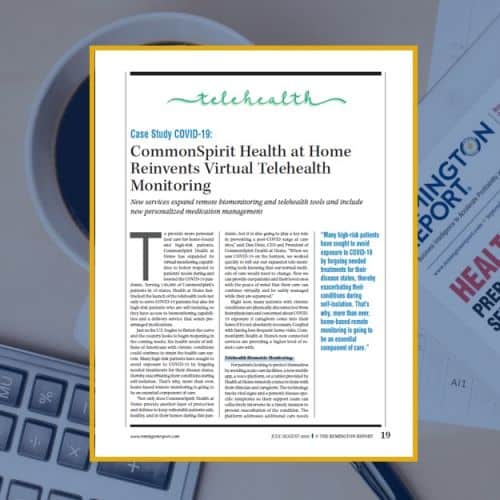 CommonSpirit Health at Home provides another layer of protection and defense to keep vulnerable patients safe, healthy, and in their homes during this pandemic. And, it positioned to play a key role in preventing a post-COVID surge at care sites. Learn how CommonSpirit at Home expanded its virtual monitoring capabilities to better respond to patients? needs during and beyond the COVID-19 pandemic. This article is free to 1-Year Classic and 2-Year Premium subscribers.
CommonSpirit Health at Home provides another layer of protection and defense to keep vulnerable patients safe, healthy, and in their homes during this pandemic. And, it positioned to play a key role in preventing a post-COVID surge at care sites. Learn how CommonSpirit at Home expanded its virtual monitoring capabilities to better respond to patients? needs during and beyond the COVID-19 pandemic. This article is free to 1-Year Classic and 2-Year Premium subscribers. -
 Home health, hospice, palliative care, private duty, in-home care, and community-based organizations hold the answers to efficiently overseeing high-risk patients. This online Master Class will delve deep into new developments your referrals are experiencing, key trends impacting complex care, and how your organization can make your business case through value propositions. Discover the secrets to cultivating robust referral relationships, crafting engaging value propositions, and mastering the art of presenting compelling business cases. Registration Open Available on demand Registration includes enrollment for up to 10 people. Must be enrolled to attend. Business email required for each enrollee. This Master Class is delivered live online but will also be available afterward on demand, ensuring you can get valuable insights even if you cannot attend the live event. Don’t let your busy schedule hinder your access to valuable knowledge and skills.
Home health, hospice, palliative care, private duty, in-home care, and community-based organizations hold the answers to efficiently overseeing high-risk patients. This online Master Class will delve deep into new developments your referrals are experiencing, key trends impacting complex care, and how your organization can make your business case through value propositions. Discover the secrets to cultivating robust referral relationships, crafting engaging value propositions, and mastering the art of presenting compelling business cases. Registration Open Available on demand Registration includes enrollment for up to 10 people. Must be enrolled to attend. Business email required for each enrollee. This Master Class is delivered live online but will also be available afterward on demand, ensuring you can get valuable insights even if you cannot attend the live event. Don’t let your busy schedule hinder your access to valuable knowledge and skills.Add Your Enrollees
Additional enrollees will be enabled upon completion of initial enrollee. Company email addresses required. Think Tank programs are open only to provider organizations delivering patient care, including home health care, at-home care, hospice, palliative care, community-based organizations, hospitals, ACOs, managed care organizations, and physicians. Enrollees for the program must be full-time employees of the organization. If you are unsure whether your organization qualifies for Think Tank programs or your organization is a provider that also sells products, services or you are a consultant then contact us before enrolling. -
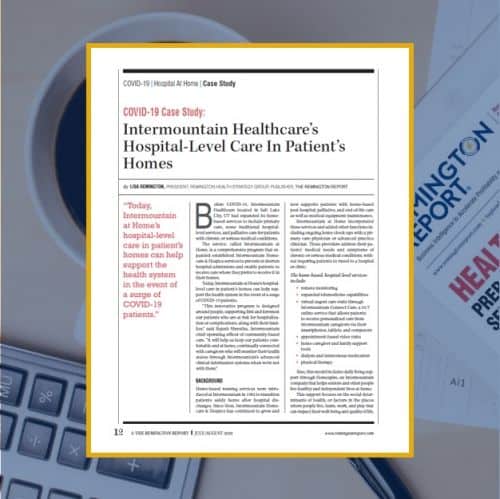 Intermountain at Home’s hospital-level care in patient’s homes supports their health system in the event of a surge of COVID-19 patients. Their models include home-based post-hospital care, palliative, and end-of-life care as well as medical equipment maintenance. This article is free to 1-Year Classic and 2-Year Premium subscribers.
Intermountain at Home’s hospital-level care in patient’s homes supports their health system in the event of a surge of COVID-19 patients. Their models include home-based post-hospital care, palliative, and end-of-life care as well as medical equipment maintenance. This article is free to 1-Year Classic and 2-Year Premium subscribers. -
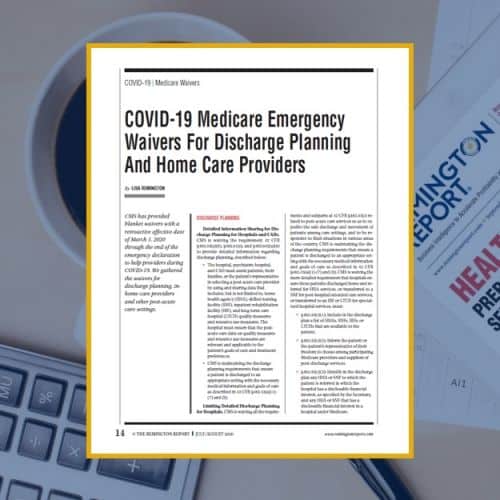 CMS has provided blanket waivers with a retroactive effective date of March 1, 2020 through the end of the emergency declaration to help providers during COVID-19. We gathered the waivers for discharge planning, in-home care providers, and other post-acute care settings. This article is free to 1-Year Classic and 2-Year Premium subscribers.
CMS has provided blanket waivers with a retroactive effective date of March 1, 2020 through the end of the emergency declaration to help providers during COVID-19. We gathered the waivers for discharge planning, in-home care providers, and other post-acute care settings. This article is free to 1-Year Classic and 2-Year Premium subscribers. -
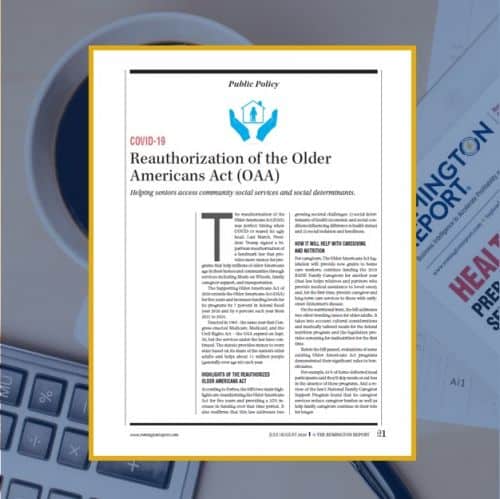 The reauthorization of the Older Americans Act (OAA) was perfect timing when COVID-19 reared its ugly head. Last March, President Trump signed a bipartisan reauthorization of a landmark law that provides more money for programs that help millions of older Americans age in their homes and communities through services including Meals on Wheels, family caregiver support, and transportation. This article is free to 1-Year Classic and 2-Year Premium subscribers.
The reauthorization of the Older Americans Act (OAA) was perfect timing when COVID-19 reared its ugly head. Last March, President Trump signed a bipartisan reauthorization of a landmark law that provides more money for programs that help millions of older Americans age in their homes and communities through services including Meals on Wheels, family caregiver support, and transportation. This article is free to 1-Year Classic and 2-Year Premium subscribers. -
 These three workshops challenge current practices to improve discharge planning and readmission management by addressing changes to policy and payments, adopting new concepts of referral engagement, and creating actionable blueprints. Includes review of current practices, discussion of appropriate aims, measurement strategies, and improvement methods. Available On Demand 3 Master Classes | Purchase the Series $1,100 | Enroll Up To 10 People Topics
These three workshops challenge current practices to improve discharge planning and readmission management by addressing changes to policy and payments, adopting new concepts of referral engagement, and creating actionable blueprints. Includes review of current practices, discussion of appropriate aims, measurement strategies, and improvement methods. Available On Demand 3 Master Classes | Purchase the Series $1,100 | Enroll Up To 10 People Topics- Synergistic Discharge Planning Management and Solving Mutual Financial and Quality Challenges
- Challenging Current Practices in Readmission Management to Create Synergistic Solutions
- Peer-to-Peer Best Practice Presentations
Add Your Enrollees
Additional enrollees will be enabled upon completion of initial enrollee. Company email addresses required. Think Tank programs are open only to provider organizations delivering patient care, including home health care, at-home care, hospice, palliative care, community-based organizations, hospitals, ACOs, managed care organizations, and physicians. Enrollees for the program must be full-time employees of the organization. If you are unsure whether your organization qualifies for Think Tank programs or your organization is a provider that also sells products, services or you are a consultant then contact us before enrolling. -
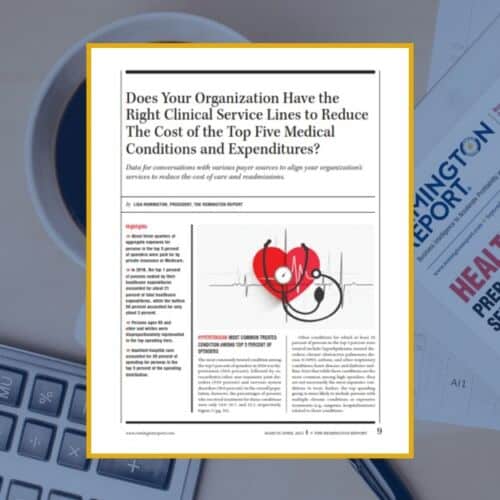 New information will help your organization better align clinical services to reduce the cost of the highest medical conditions and their expenditures. The data can be used in conversations with various payer sources to align your organization’s services to reduce the cost of care and readmissions. This article is free to 1-Year Classic and 2-Year Premium subscribers.
New information will help your organization better align clinical services to reduce the cost of the highest medical conditions and their expenditures. The data can be used in conversations with various payer sources to align your organization’s services to reduce the cost of care and readmissions. This article is free to 1-Year Classic and 2-Year Premium subscribers. -
 Reducing readmissions stands as one of the most impactful value propositions your organization can offer to any referral source. This pivotal metric is carefully scrutinized by referral partners to foster collaborative partnerships. This online Master Class will explore strategies for building relationships, crafting persuasive value propositions, and mastering the art of presenting compelling business cases to strengthen collaborations between home health, hospice, palliative care, private duty, and in-home care providers with your referral sources. Available On Demand REGISTRATION FEE : $420 Registration includes enrollment for up to 10 people. Must be enrolled to attend. Business email required for each enrollee. This Master Class is delivered live online but will also be available afterward on demand, ensuring you can get valuable insights even if you cannot attend the live event. Don’t let your busy schedule hinder your access to valuable knowledge and skills.
Reducing readmissions stands as one of the most impactful value propositions your organization can offer to any referral source. This pivotal metric is carefully scrutinized by referral partners to foster collaborative partnerships. This online Master Class will explore strategies for building relationships, crafting persuasive value propositions, and mastering the art of presenting compelling business cases to strengthen collaborations between home health, hospice, palliative care, private duty, and in-home care providers with your referral sources. Available On Demand REGISTRATION FEE : $420 Registration includes enrollment for up to 10 people. Must be enrolled to attend. Business email required for each enrollee. This Master Class is delivered live online but will also be available afterward on demand, ensuring you can get valuable insights even if you cannot attend the live event. Don’t let your busy schedule hinder your access to valuable knowledge and skills.Add Your Enrollees
Additional enrollees will be enabled upon completion of initial enrollee. Company email addresses required. Think Tank programs are open only to provider organizations delivering patient care, including home health care, at-home care, hospice, palliative care, community-based organizations, hospitals, ACOs, managed care organizations, and physicians. Enrollees for the program must be full-time employees of the organization. If you are unsure whether your organization qualifies for Think Tank programs or your organization is a provider that also sells products, services or you are a consultant then contact us before enrolling. -
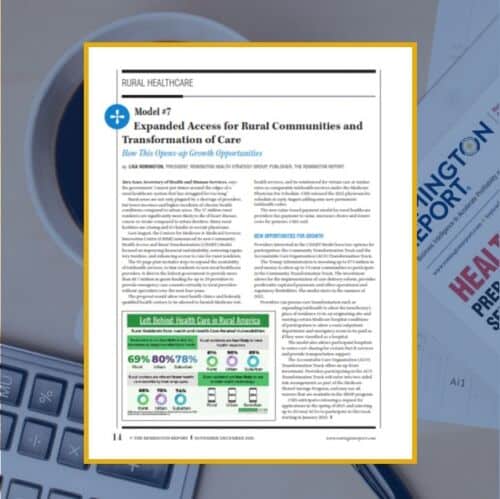 The Community Health Access and Rural Transformation (CHART) Model expands telehealth services, links residents to non-local healthcare providers, and provides more than $8.7 million in grant funding. What are the new opportunities for your organization? This article is free to 1-Year Classic and 2-Year Premium subscribers.
The Community Health Access and Rural Transformation (CHART) Model expands telehealth services, links residents to non-local healthcare providers, and provides more than $8.7 million in grant funding. What are the new opportunities for your organization? This article is free to 1-Year Classic and 2-Year Premium subscribers. -
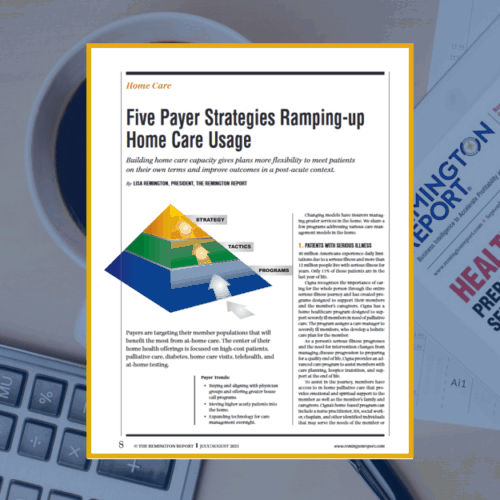 Payers are targeting their member populations that will benefit the most from at-home care. The center of their home health offerings is focused on high-cost patients, palliative care, diabetes, home care visits, telehealth, and at-home testing. This article is free to 1-Year Classic and 2-Year Premium subscribers.
Payers are targeting their member populations that will benefit the most from at-home care. The center of their home health offerings is focused on high-cost patients, palliative care, diabetes, home care visits, telehealth, and at-home testing. This article is free to 1-Year Classic and 2-Year Premium subscribers.
